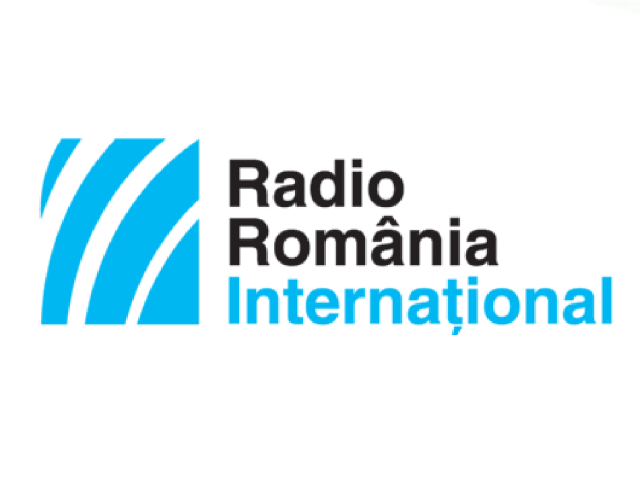The Fourth World Festival of Youth and Students, held in Bucharest
Staging gigantic events in order to legitimize the communist partys inflexible policy became common practice in Romania, too, shortly after March 6, 1945 in a bid to imitate the Soviet model

Steliu Lambru, 15.10.2018, 11:48
Staging gigantic events in order to legitimize the communist partys inflexible policy became common practice in Romania, too, shortly after March 6, 1945 in a bid to imitate the Soviet model, with huge public rallies ready to endorse unflinchingly any decision made by the party.
Such events were actually cheap shows, smoke and mirrors aimed at diverting peoples attention from the lifes real shortages and the regimes blatant violation of human rights and liberties.
One of these large-scale events was also the Fourth World Festival of Youth and Students, hosted by Bucharest over August 2-16, 1953. High on the festivals agenda were the “anti-war campaigns and the “democratization of the academic and university environments. The festivals first edition was held in Prague in 1947 and brought together 17,000 young people from 71 countries. The one in Bucharest was attended by 30,000 young people from 111 countries being, along the one in Poland in 1955, the second largest in terms of the number of participants. The slogan under which the aforementioned festival unfolded was “No! Our Generation wont allow death and destruction anymore.
A new, funny syntagm with religious connotation had been coined during the event though. People referred to the authorities decision to channel basic food supplies towards the event as the “Festivals Lent, mocking a decision aimed at shortening the already poor food rations. The severe food shortages that followed also brought along the first big queues in cities across Romania, a phenomenon that would resurface back in the 1980s. The University Games of 1981 unfolded exactly against the same background of food shortages.
As a student of the Polytechnic Institute in Bucharest, Stefan Barlea was a member of the organization committee. In an interview with the Oral History Centre of the Romanian Radio Broadcasting Corporation in 2002, Stefan Barlea recollected some of the efforts made to stage the festival: “As the decision to stage the event had been made quite on a short notice, we need to provide food supplies and other things and thats how the Festivals Lent syntagm appeared. Meals in our cafeteria were quite poor, I remember; we used to have some a sort of bad-tasting semolina for dinner and lunch. They had summoned us in large numbers in an attempt to forge a Support Committee for the festival. About 100 students from the Polytechnic Institute got the assignment to collect fresh vegetables and fruit from the surrounding villages for the festival. We had been trained on that for a month before the festival, during which they took us on reconnaissance missions to villages around Bucharest. We simply couldnt turn down a job assigned to us by the communist party. Others were asked to join music ensembles and entertain the participants in the festival. So, it was a pretty ample project, you see.
Romanias communist authorities went to great lengths to provide proper accommodation conditions to the participants, but the poor infrastructure available took its toll on the events good functioning. Among the most visible shortcomings were the long queues in cafeterias and other places serving meals to the participants, the insufficient and improper toilets and baths as well as the precarious medical assistance.
Stefan Barlea: “The participants were offered accommodation in student hostels around Bucharest and also in some hotels, because they had come in large numbers. Bucharest was teeming with young people, mostly invited by left-wing organizations of course. It was the Festival of Youth and Students, staged by the World Union of Democratic Youth and the International Students Union. There were also organizations from the West, like those affiliated to the French and Italian Communist Parties. The event enjoyed a tremendous success and it also proved to be a launching pad for many new talented artists. Some of them shot to fame shortly after the festival, like Nicolae Nitescu and Constantin Draghici who eventually emigrated to Germany.
“The 23rd August Stadium in Bucharest venued the festival but the participants were also invited to attend seminars and workshops on the events sidelines.
Stefan Barlea: “Dance shows and fireworks were commonplace during the festival, which also included international seminars on various topics. The topical issue back then was how to implement democratic reforms in universities as it was shortly after the war and everybody saw that as a key priority. There were also a couple of exhibitions mounted in the Herastrau Park.
The Fourth World Festival of Youth and Students was received with indifference by the Romanians though, and there were situations in which Romanian citizens handed letters and notes to Western students in an attempt to make better known worldwide the real ugly face of communism.
Just like any event that had lost its touch with reality the Fourth World Festival of Youth and Students of 1953 was only a façade, to divert public attention from the harsh realities of the communist regime.






























